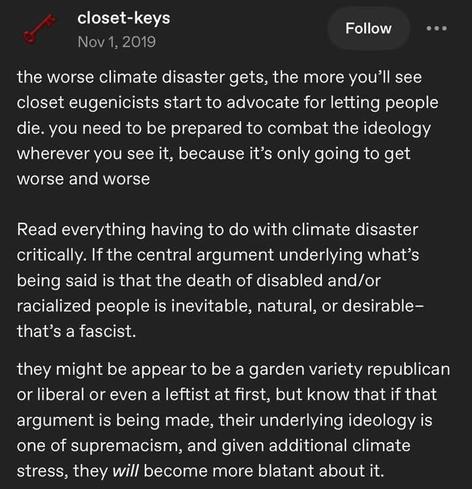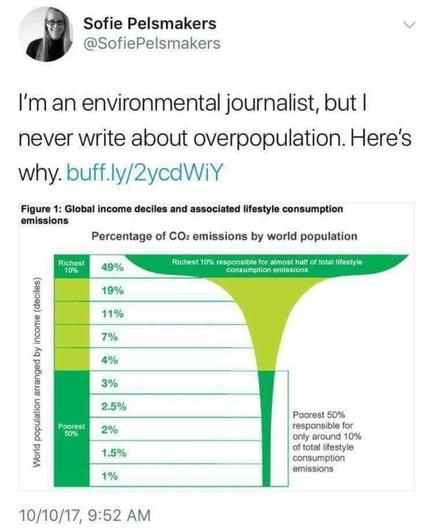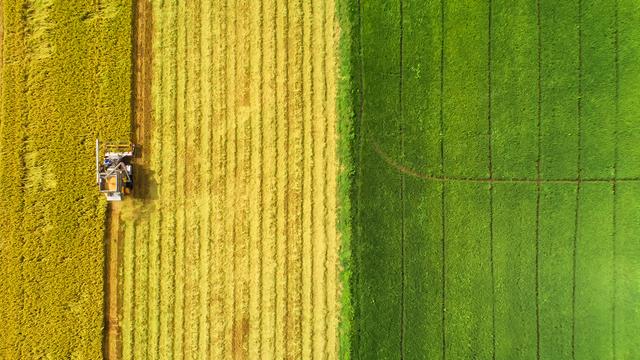@anolandria @pezmico I'm not sure about this. I don't see over-consumption and over-population as mutually exclusive here. They can both be problems for the planet, even if one (over-consumption by wealthy countries) is currently the bigger impact.
8.2 billion is *a lot* of people and it's hard to imagine this many of us living comfortably and safely on our one planet for even hundreds of years, without massive social, economic, and technological changes.
I'm in New Zealand and 8.2 billion people living even like a low income New Zealander would very quickly wreck the world. Yet, as a country NZ is never going to give away most of its wealth to poorer countries.
Thinking longer term will need us to find a better balance between per-person consumption and population size, one that fits within what the planet can sustainably provide for us.
(Sorry for the long response. I have no idea how we get to there from the mess we're in now.)
This planet produces food enough for 12 billion people, but capitalists profit from enforced scarcity. E.g. before grain gets to a bakery, it has been traded 100x for profits of the top 10%. You can exercise that imagination of yours and unlearn capitalist thinking.
@Heidentweet @anolandria @pezmico “Supplying a sufficient and healthy diet for every person while keeping our biosphere largely intact will require no less than a technological and sociocultural U-turn, the authors wrote. It includes adopting radically different ways of farming, reduction of food waste and dietary changes”


